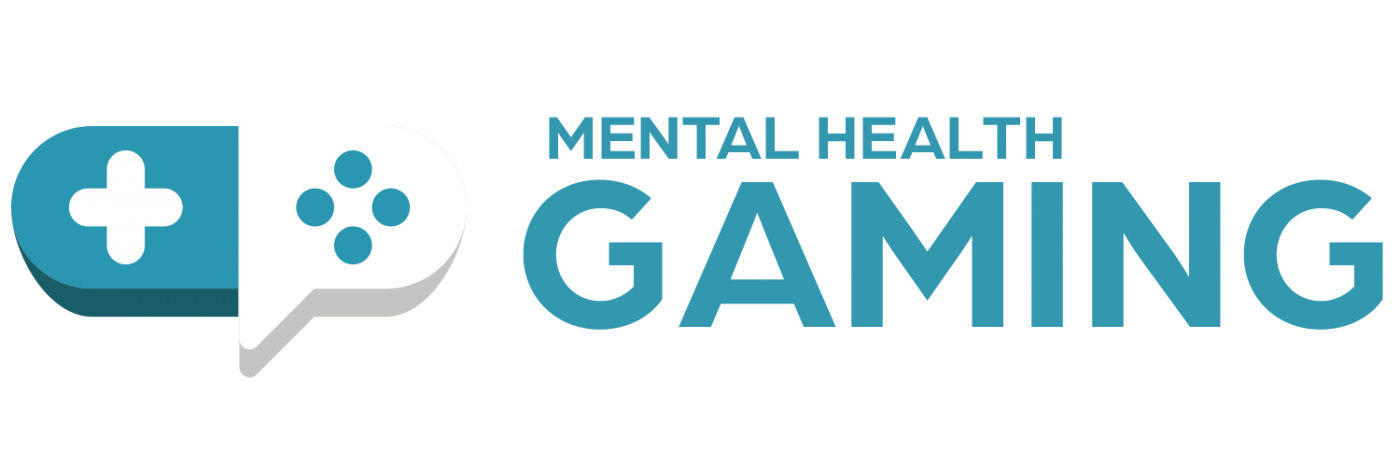Something a bit different this time for Double Kick Heroes. We had two, not one, not three, but TWO of our intrepid reviewers play the game and write about it for your reading pleasure. First up, knuckle dragging neck-wrecker Steve uses his spectacular lack of co-ordination to survive the zombie apocalypse.
I love heavy metal. LOVE it. LIVE for it. Heavy metal, like crushing your enemies and seeing your them driven before you, is what is good about life. There’s actual studies about how people who like heavy metal are some of the happiest in society because of the catharsis delivered by ridiculous blast beats, chugging, monolithic riffs and cookie monster vocals. It’s true, Google it.
Heavy metal is a music genre so diverse you can make up the stupidest sounding sub-genre and the chances are there will be a band that fits it. Like, chip-metal. Y’know, chip tunes, but METAL. Master Boot Record does that. Or maybe cosmic mollusc doom. Slugdge have you covered. As do Space Slug. Pirate metal? Alestorm. Lagerstein. Rum Ahoy. There’s bound to be more I haven’t discovered yet.
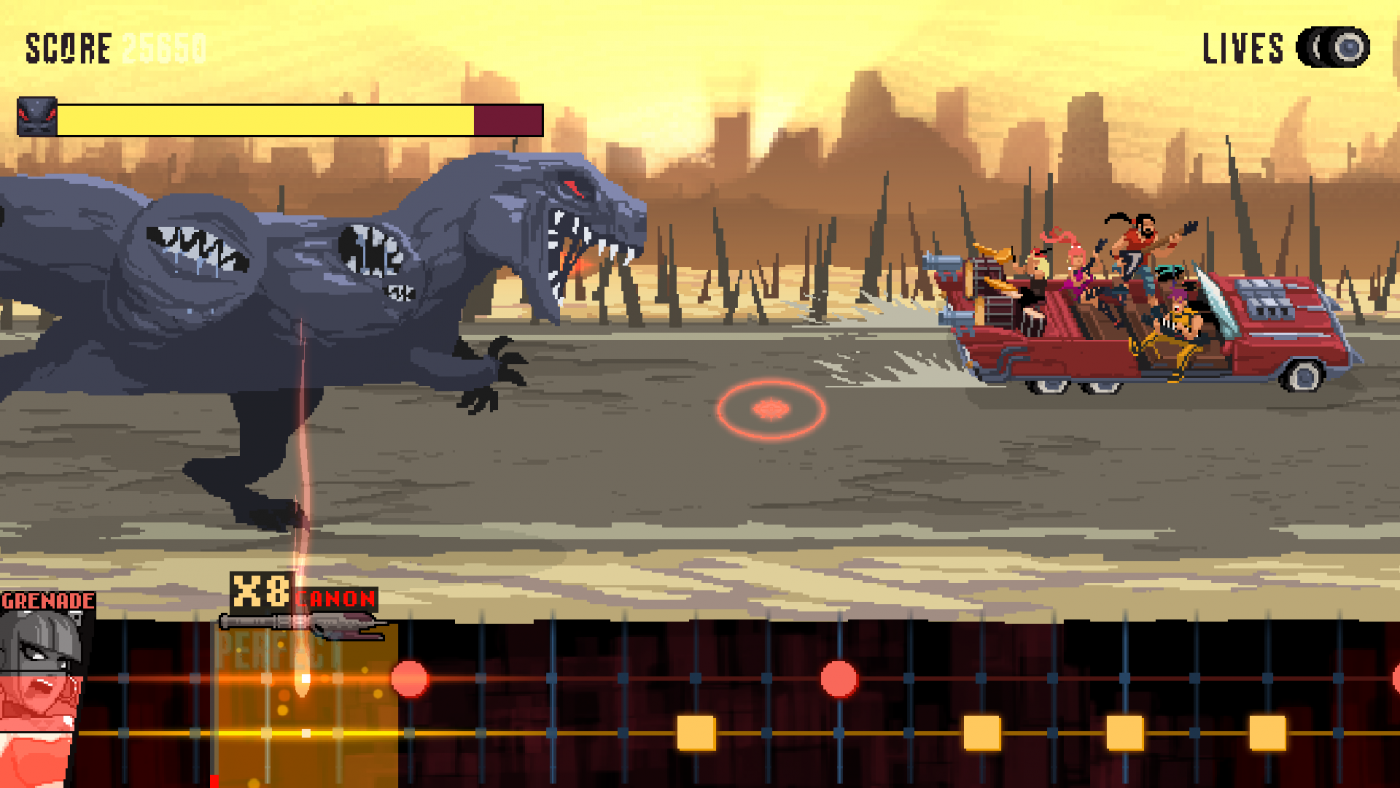
Heavy metal is, at its core, wonderfully, spectacularly ridiculous and so when I heard that there’s a rhythm action game dedicated to that unholiest of churches I was in. Aaaaaaaaall the way in. And Double Kick Heroes, if nothing else, really is a love letter to heavy metal.
Set in a post apocalyptic wasteland of North America you are the Double Kick Heroes, mercenary band trying to figure out what the flipping heck has happened to make the good ol’ US of A a wasteland of zombies, thugs and shark men. Lincoln is the grumpy bugger leader and owner of Sheila, a Gundillac (basically a Cadillac with machine guns on the back. Because obviously), and togther with her band of lovably dorky metal stereotypes they set off to fight evil across the continent by powering the cars offensive weapons systems with the power of METAL. And synthwave. And some other bits and bobs musically mixed in, look just go with it, yeah?
The story is pretty much the hokum you’d expect, with lots of unnecessary swearing, in-jokes and nodding winks to people who know the genres it’s pulling from.
I mean, the whole premise of driving along in a music powered mobile weapon of mass destruction, laying waste to the pursuing zombie hordes is the kind of ridiculous you just have to roll with and accept the baggage that comes along for the ride.
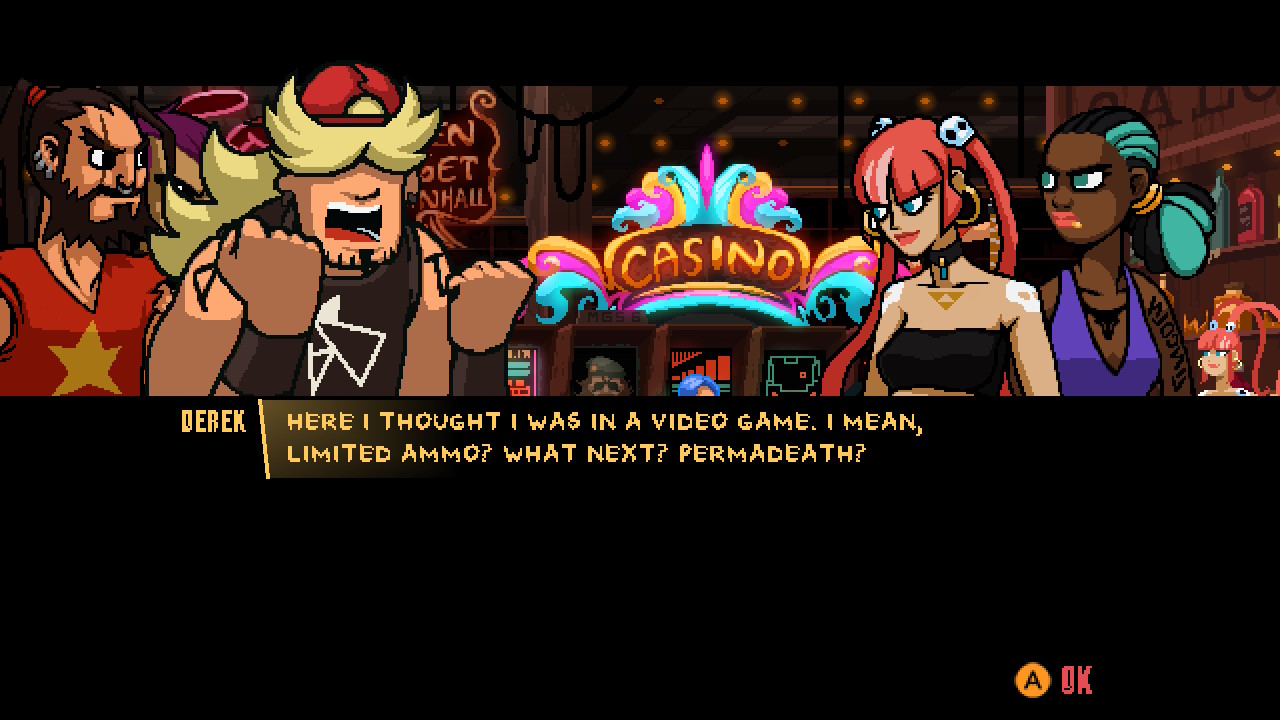
Along the bottom of the screen is a track. Symbols scroll along this track and when they scroll underneath the window on the left of the screen you tap the corresponding button in time with the music.
On very easy and easy (called Rock and Hard Rock in game. I started on Metal, or normal, but had to knock it down, which I’ll get to presently) there are fewer notes and you only have to worry about shooting on the ‘lower’ and ‘upper’ plane of the playing field, plus the snare drum which launches grenades when you fill the bar with successive hits.
It’s a simple set up, no external plastic instruments required, but unfortunately the controls are what hampers the game from being a truly fantastic, fun experience.
Originally DKH was released on PC so the keybinds were on the flat plane of the keyboard. This made successive rapid double kick or snare hits much easier to successfully register. Later in the game, because of the brilliantly eclectic spread of metal from Rammstein-esque industrial stomp to NWOBH Iron Maiden harmonised wailing to Municipal Waste party thrash, it becomes so frenetic my brain couldn’t follow the off beat patterns of the kick and snare. The window for hitting the notes is incredibly generous but even then if you miss too many notes you lose your lives and that’s the level over with and you’re starting again.

On the flip side, if you bugger up the inputs while trying to keep up with the rapidity of it the game will frequently punish you for button mashing even though you’re actually just trying to just hit the notes. When this happens you can’t hit ANY notes for a small time, and that’s often enough to wipe you out, which is incredibly frustrating.
There are numerous input methods for the Switch version and while I haven’t tried the Joycon method (because after the Taiko No Tatsujin debacle bugger that for a game of soldiers), you can reconfigure the controls and putting the kick drums/upper and lower tracks on the Switch shoulder buttons made the game much more manageable over the default configuration.
The mechanic of upper and lower tracks for the enemies isn’t too drastic a problem but it still was an issue. When you’re watching the note track you can’t really see which one the enemies are coming at you from. You can glimpse on the periphery of your vision and glance up but on the faster tracks you’re trying to maintain concentration on the notes and that is another thing to bear in mind because it’s easy to just hammer one kick button and forget about the other.
The difficulty also spikes like a monster. It’s all over the place. So much so some of the tracks seemed only to be doable if you were an actual drummer. Or at least had your brain wired in the way that means you can do the off-beat kick drum/snare rhythm.
However when you get into a rhythm, successfully hit the notes and start laying waste to the chasing undead throng DKH gives that wonderful dopamine sense of satisfaction and elation the best rhythm action has to offer.
The pixel art style is lovely. Not especially outstanding, but stands alone well enough in a sea filled with indie pixel art games.
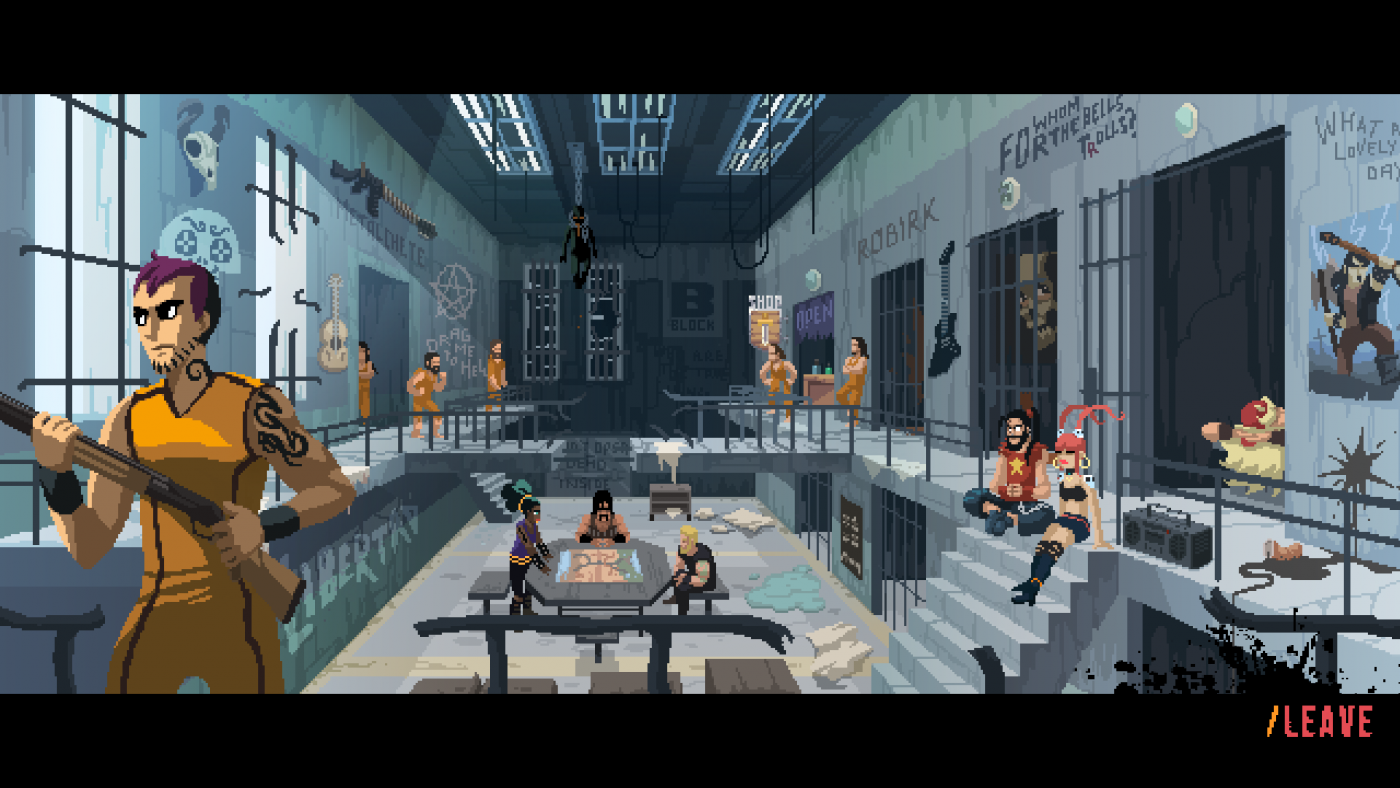
The soundtrack ranges from capable to fantastic and deliberately evokes genres and often specific bands. Daft things like the song titles and the genres they give the tracks made me laugh. For example “Destroy And Race And Groove” is in a genre named Shuggahcore, which I proper guffawed at because it was wonderful word play on Meshuggah’s “Destroy, Erase, Improve”. When I tried to explain why it was funny enough to make me just burst out laughing my other half gave me that sympathetic, yet pitying, look she reserves for when I’m being an unapologetic dork.
And I seemed to spend a good chunk of my time in between the missions, usually during the cutscenes, playing “Spot the easter egg”. Some are really obvious, like the Danny Trejo parallel named Metalchete. Some aren’t so much, like his frenemy Robirk, which I took to be a mash up of Robert Kirkman’s (writer of The Walking Dead comic) name because you encounter those characters in a prison. During the zombie apocalypse. Maybe it’s not so obtuse a reference. But I LOVE that! I love the Eddie Riggs poster on the wall, Hoagie from Day of the Tentacle being in a tube in the casino, the blatant Marilyn Manson-alike. It all made me smile.
On top of the story there’s an arcade mode so you can replay any of the songs unlocked in the story mode, a rogue-like mode where you get a one and done daily run complete with modifiers to pick up along the way and even some licensed tracks from Gojira, Jinjer, Gorod, Carpenter Brut and more.
So while Double Kick Heroes is too niche to ever be an arena straddling, world conquering, multi platinum selling monster because of some fundamental mechanical issues it also falls short of being the 2000 capacity, mid sized venue with sticky floors headliner. Instead it’s the enthusiastic local opening act; playing to a room only a third full but in that crowd they’ll find a small and devoted following who will be happily head banging along at the barrier, horns high in the air, loving the music for what it is.
And now Wills much more considered, less rabidly-fanboying take on Double Kick Heroes.
Double Kick Heroes strikes me as a creative labour of love for the metal genre, its countless subgenres and for rhythm action games, I just wish I were adept enough to experience all that it offers.
Having put plenty of hours into a number of excellent rhythm games on the Switch over the past six months, from Groove Coaster Wai Wai Party!!! To Hatsune Miku: Project DIVA Mega Mix and the evergreen Taiko no Tatsujin, I was now looking forward to tapping out some beats beyond the J-pop/Vocaloid genres.
Full credit must go here to the composer, Elmobo, for such a range of brutal and beastly dirges, as well as some superb guest appearances.
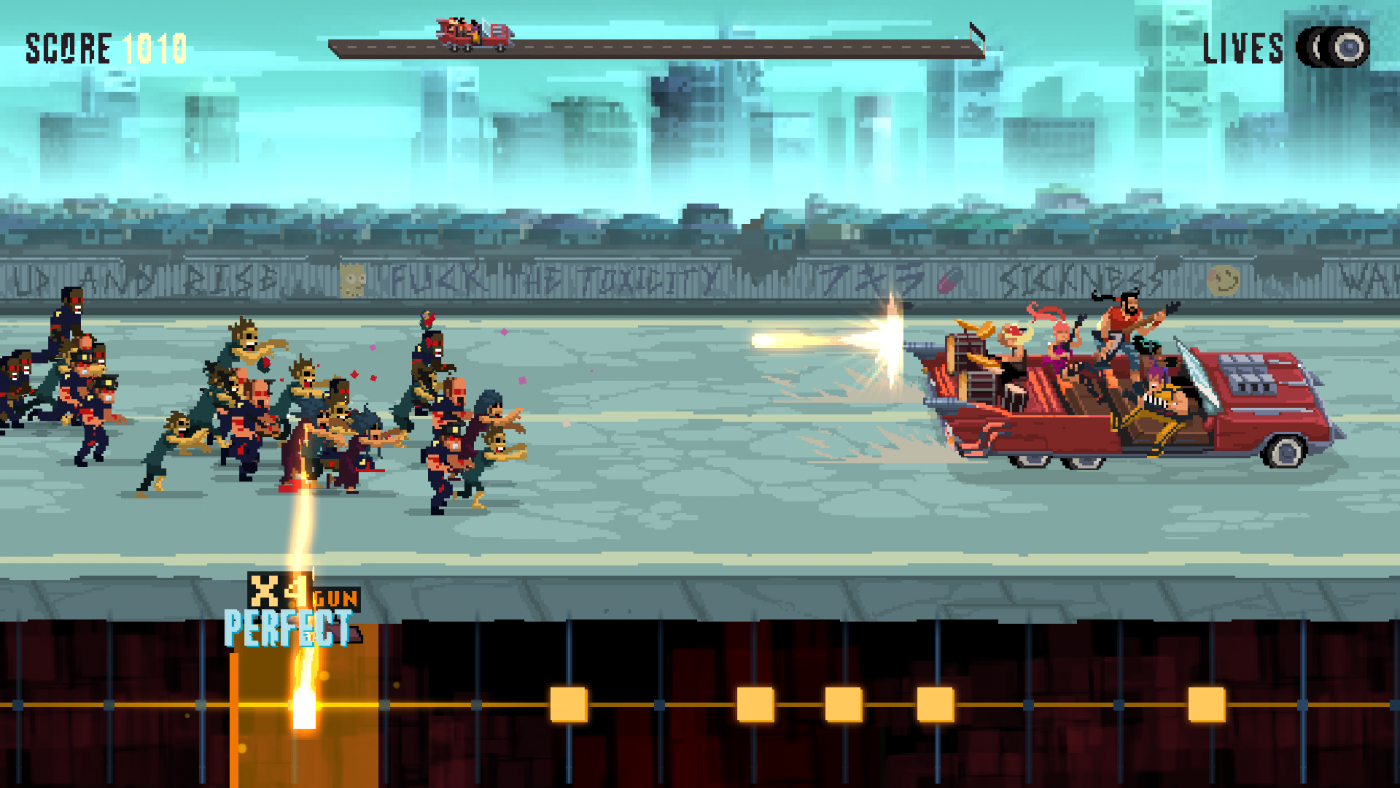
Double Kick Heroes dispenses with directional inputs, waggling or holding buttons and from a musical perspective, it focuses purely on the drums. It’s therefore mechanically closest to Taiko, the rhythm game I’ve played most. Using the face buttons for kick drum pedals and the bumpers for snares, I was quickly thumping out beats beneath some grinding riffs and it felt like an exhilarating heavy take on the familiar formula. Within a few stages, though, I started to feel that something was off. The issue is that in trying to add further complexity and to draw greater attention to its fantastic pixel art, multi-tasking in Double Kick Heroes quickly became too demanding for me.
While your visual attention in rhythm games is almost always on the chart, in Double Kick Heroes this takes up less than 20% of the screen size. The usual score counters and health bars sit on the upper edge of the frame, but the majority of real estate is given over to some fantastic, gory and goofy pixel art.
Double Kick Heroes has an actual Story Mode and characters and an explanation for its rhythm gameplay. In brief, your band is trying to cover the map by car, chased by hordes of assorted undead mutants, and your drums are naturally hooked up to an arsenal of weaponry to take them out.
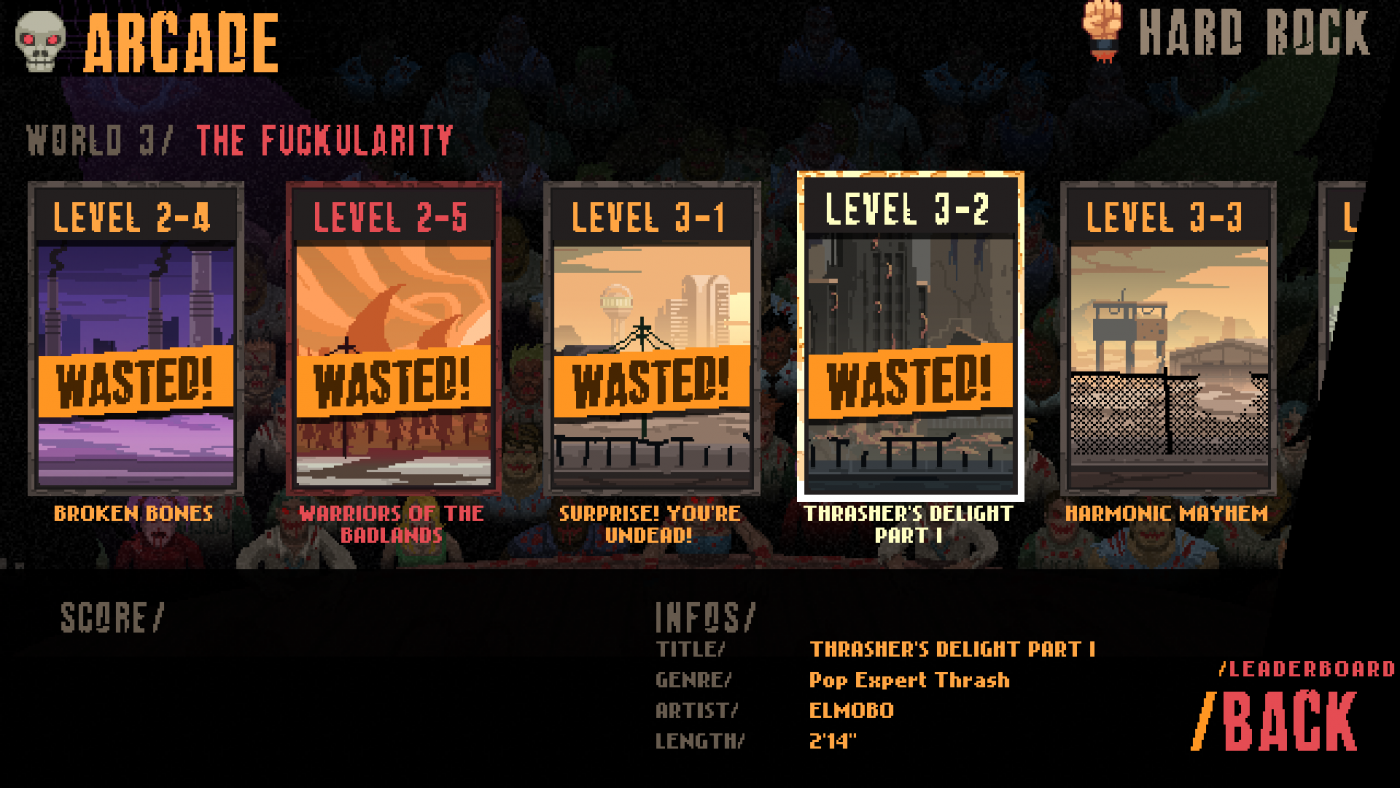
This means that you must alternate kicks to shoot high and low on the screen, and time your snare grenades for maximum damage. Beyond that, you also have to move your car with the analogue stick to avoid timed obstacles.
I wholeheartedly applaud the developers at Headbang Club for trying something new and I respect their attempt to tweak a tried-and-tested genre and inject some personality. If I were capable of watching both the chart notation and the enemies on the main screen, tapping out triplets to fire along the correct lanes and weaving around obstacles as they appear, I think I would have a blast with it. Unfortunately, I’m not, and even with the wide range of settings and automated modifiers I failed to find a difficulty level which gave me the right balance of satisfaction, excitement and a desire to improve.
As much as I admire Double Kick Heroes, the easiest modes are too straightforward to get enthusiastic about, and the difficulty spikes prevent me from increasing the challenge.
